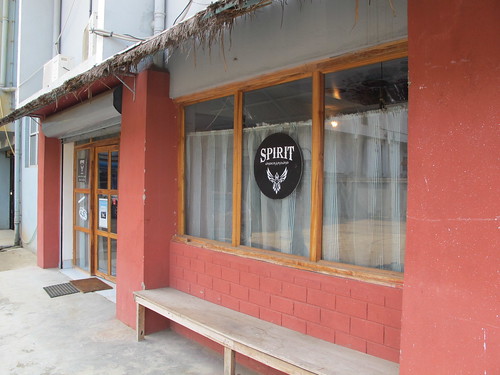(I was meant to post this months ago, but only just remembered to do it after my weekend in Dimapur.)
One of my favourite places to hang out at when I'm in Dimapur is Hiyo Cafe. I like it because it's pretty quiet (being separated from the main road by a building), it's close to the hotel I usually stay at, and it's run by Sumis.

In case you can't see, the name Hiyo (hi: yɔ - someone's even written it in IPA) is a "versatile Sumi word that is usually associated with the Satakha Region of the Zunheboto District in Nagaland, India." According to the explanation, it can be used an adjective, an exclamation or a pronoun. As an adjective, it expresses "satisfaction or fulfillment", but it does seem to have a wider range of meanings which aren't listed here (more linguistic investigation needed!).



One of my favourite places to hang out at when I'm in Dimapur is Hiyo Cafe. I like it because it's pretty quiet (being separated from the main road by a building), it's close to the hotel I usually stay at, and it's run by Sumis.

In case you can't see, the name Hiyo (hi: yɔ - someone's even written it in IPA) is a "versatile Sumi word that is usually associated with the Satakha Region of the Zunheboto District in Nagaland, India." According to the explanation, it can be used an adjective, an exclamation or a pronoun. As an adjective, it expresses "satisfaction or fulfillment", but it does seem to have a wider range of meanings which aren't listed here (more linguistic investigation needed!).



The cafe has a nice interior with comfortable couches and tables, far nicer than most places you'd find in Dimapur. They serve mostly drinks here: coffee, tea, juices and cocktails too. My friends enjoy the cocktails here while I enjoy the coffee. They also have snacks like french fries and chicken fry.
It's a nice place if you're catching up with friends, or if you need a place to sit and work on a laptop.
Also, you might catch a glimpse of Alobo Naga & the Band whenever they're in town.
Hiyo Cafe is located at 1, Basement, Aiko Building, Opp Town Hall, Dimapur Nagaland.
(If you're coming on the road from the Railway Station heading towards Supermarket, it's on the left side. Look out for Furtado's Music Store, the cafe's right behind it.)






